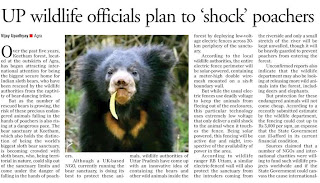Rural influx makes BSNL double capacity in Agra
Vishal Sharma
New Delhi/ Agra. Mobile service providers in Agra are facing an acute problem. Agra is surrounded by hundreds of small villages and during the daytime most of the rural population flocks to the city for work.
This has left the service providers in trouble as they are having a tough time in providing flawless service during the day because of the congestion in the network towers in the city. Whereas the rural call traffic drops to nearly 30 per cent during this time.
Taking this into consideration, Bharat Sanchar Nigam Ltd has decided to raise the call handling capacity of its towers in the urban areas by two times, while adding another 50 towers in the areas facing the highest call congestion.
According to Rajesh Kumar, deputy general manager (Mobiles), BSNL, the company currently has 124 towers in the city, serving about 150,000 subscribers while the total call handling capacity available with BSNL in the city is only for around 140,000 subscribers.
This means that the network becomes almost inaccessible during the peak hours, with subscribers facing frequent network-busy tones.
The worst affected are commercial centres of the city. Thus, BSNL has planned to double the call handling capacity of its towers in the urban areas within six months. Another 50 towers shall be installed in the areas facing low signal.
He said the company had also begun the work of establishing a new mobile switching centre that shall increase the call handling capacity of BSNL’s mobile network significantly.
This has left the service providers in trouble as they are having a tough time in providing flawless service during the day because of the congestion in the network towers in the city. Whereas the rural call traffic drops to nearly 30 per cent during this time.
Taking this into consideration, Bharat Sanchar Nigam Ltd has decided to raise the call handling capacity of its towers in the urban areas by two times, while adding another 50 towers in the areas facing the highest call congestion.
According to Rajesh Kumar, deputy general manager (Mobiles), BSNL, the company currently has 124 towers in the city, serving about 150,000 subscribers while the total call handling capacity available with BSNL in the city is only for around 140,000 subscribers.
This means that the network becomes almost inaccessible during the peak hours, with subscribers facing frequent network-busy tones.
The worst affected are commercial centres of the city. Thus, BSNL has planned to double the call handling capacity of its towers in the urban areas within six months. Another 50 towers shall be installed in the areas facing low signal.
He said the company had also begun the work of establishing a new mobile switching centre that shall increase the call handling capacity of BSNL’s mobile network significantly.


Comments